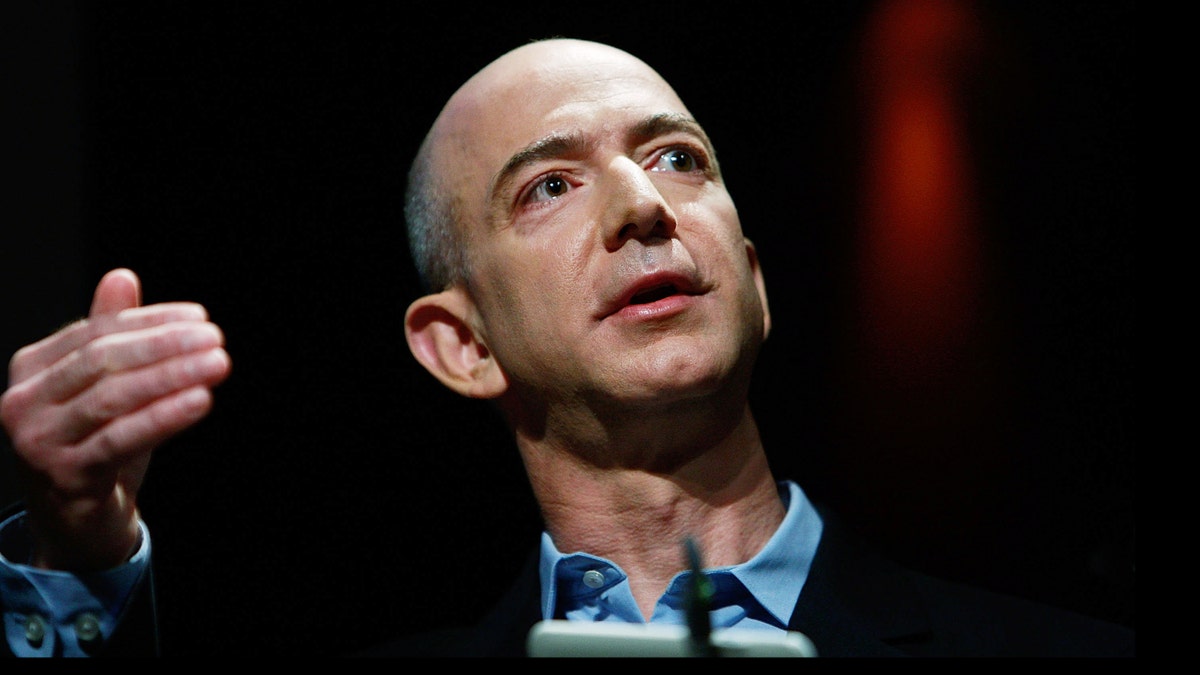
Amazon.com founder and CEO Jeffrey P. Bezos (2009 Getty Images)
Jeff Bezos does not own a pop-and-mom bookstore around the neighborhood corner, tending to some romantic customers who come in to browse and “touch” books and look over the pretty covers. He has built a world-wide bookstore with all the possible customers computers can reach. Millions. Billions, perhaps. That simple.
There is a new world to explore and millions of customers, readers, waiting for information and opinion on just about everything. The printed paper is dead and the corps is starting to stink.
I propose we take an astral trip in time, to one of the many Medieval Scriptoria and watch several monks at their desks: One is dictating while the rest are writing, quill in hand, what they hear. They are making a book; they are writing 30 books because there are 30 monks taking the dictation. This was the way books were reproduced in the Middle Ages. Very romantic and very quaint. They took their time. There was no rush because there weren’t that many customers to purchase those books: 95 percent of the population was illiterate.
Here comes Johannes Gutenberg with his movable type and the monks go out of business. Books now could be mass-produced. Could those medieval monks have stopped what was coming? Probably they did not even try. But of course, they were monks and had to accept orders from above. The German’s invention has not stopped evolving ever since, slowly at times, but surely.
The demise of the printed newspaper has been in the news for some time now and nobody has been reading the writing on the wall. Enter Jeff Bezos, he buys The Washington Post and the newspaper world goes spinning, stunned in disbelief. Why? Because Jeff Bezos owns Amazon and Amazon is to the corner bookstore what the Digital Press is to the Printed Press.
The Washington Post has been losing money, putting money down the drain, for years in the hopes that the Internet and digital journalism would go away. The Washington Post and all other printed newspapers are like the monks of yesteryear… they have to go. Print circulation is going down steadily in all countries and in all languages and that is a fact that cannot be ignored. Some try. Some think that Jeff Bezos is going to start injecting money and losing millions to save jobs. Sorry: this is a different ball game. Different game with different rules. His letter to employees is read and analyzed in the hopes that The Washington Post will continue as it is. As Cervantes said: In the nests of yesteryear, there are no birds this year.
Jena McGregor writes in the Post, August 6, 2013, boot-licking Jeff Bezos, “To start, Bezos is known as a patient and long-term thinker. He’s an innovator who reinvents old industries. And he, perhaps more than any other CEO in America, has developed a reputation for his uncanny way of tuning in to what customers need and want, often before they even know it themselves.”
I will tell you what customers do not need from a newspaper: 1. To read yesterday’s news today. 2. To carry paper around all day and then dispose of it 3. Read someone’s stale opinions that a few hours have proven wrong. 4. Pay too much for that.
I think that Jeff Bezos will do what I would do: Get rid of all the monks and their quills and inkhorns. I would follow the example set by Amazon, all the way and take advantage of the possibility big time. There is a new world to explore and millions of customers, readers, waiting for information and opinion on just about everything. The printed paper is dead and the corps is starting to stink.
McGregor is right: Jeff Bezos has an “uncanny way of tuning in to what customers need and want, often before they even know it themselves.” This time customers know what they want: not only in Washington, but in the world at large.




















